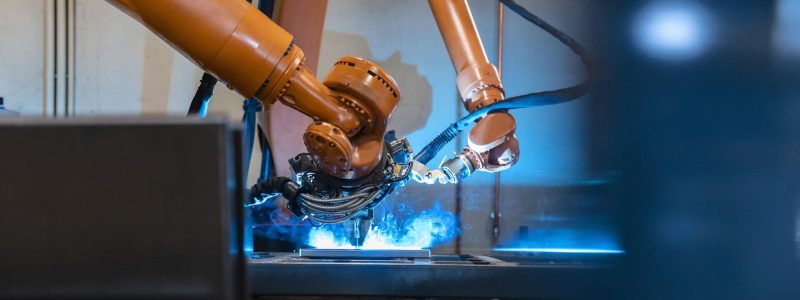The Realities Of AI In Manufacturing: Harnessing the Power and Navigating Challenges

The global manufacturing sector is on the brink of a revolution, with artificial intelligence (AI) at the forefront. Valued at over $3 billion in 2023, the manufacturing AI market is projected to surge to over $20 billion by 2028, according to the World Economic Forum. AI’s integration into manufacturing promises enhanced efficiency, improved safety, and superior product quality, transforming operations and setting the stage for significant advancements.
The Transformational Impact of AI in Manufacturing
Leveraging Generative AI for Efficiency Generative AI is redefining the capabilities of industrial operations by embedding advanced machine learning technologies into everyday processes. This integration allows for agile production cycles, simultaneous handling of complex product lines, and real-time safety and maintenance alerts, significantly enhancing operational efficiency.
Data-Driven AI Applications The efficacy of AI largely depends on the quality of data it consumes. Manufacturers must gather extensive data from sensors, cameras, and interconnected systems across the shop floor. Contextualizing this data is crucial—it transforms raw data into meaningful insights that drive intelligent AI applications and foundational strategies for impactful AI initiatives.
Roadblocks In AI Adoption
Financial and Resource Investment Adopting AI requires significant financial outlays for technology, infrastructure, and training. The cost can be prohibitive for small to midsize enterprises that lack the resources for such hefty investments. However, the increasing affordability and commoditization of AI technology offer a glimmer of hope, with out-of-the-box solutions and incremental implementation easing the financial burden.
Tackling the Manufacturing Skills Gap The industry faces a critical challenge in attracting and retaining skilled workers. As veteran employees retire, there is a pressing need to transfer essential knowledge to a new generation of workers. Moreover, the demand for AI expertise across sectors makes it even more challenging for manufacturers to find and keep the talent needed to drive AI initiatives forward.
Data Quality and System Integration Challenges Manufacturers often struggle with collecting enough quality data to effectively feed AI systems, leading to skewed datasets that do not accurately represent operations. Additionally, integrating AI with existing legacy systems presents compatibility challenges, creating data silos that hinder effective application.
The Road To Industry 4.0
Embracing Continuous Improvement Through AI The integration of digital technology and AI heralds a new era in manufacturing, marked by enhanced productivity and innovation. As companies navigate the complexities of Industry 4.0, those that effectively harness AI are positioned to achieve significant competitive advantages.
IBG Insights
While the potential of AI in manufacturing is immense, realizing this potential requires more than just technology—it demands a strategic approach to data management and a commitment to overcoming the inherent challenges of AI integration. Manufacturers must prioritize building robust data foundations and fostering a skilled workforce to fully leverage AI. The journey to Industry 4.0 is fraught with challenges, but with careful planning and execution, it promises to revolutionize the manufacturing landscape.
In conclusion, as manufacturers embark on this transformative journey, they must be proactive in addressing the potential roadblocks while strategically leveraging AI to enhance efficiency and innovation. The path forward is complex but rewarding for those who navigate it wisely.
More insights into the boardroom

Join us in designing the future of leadership by connecting visionary companies with transformative leadership.
Quick Links
Lets Get In Touch
Corporate Office
Palo alto, California 94302
Office Location
500 Capitol Mall, Sacramento, CA 95814










